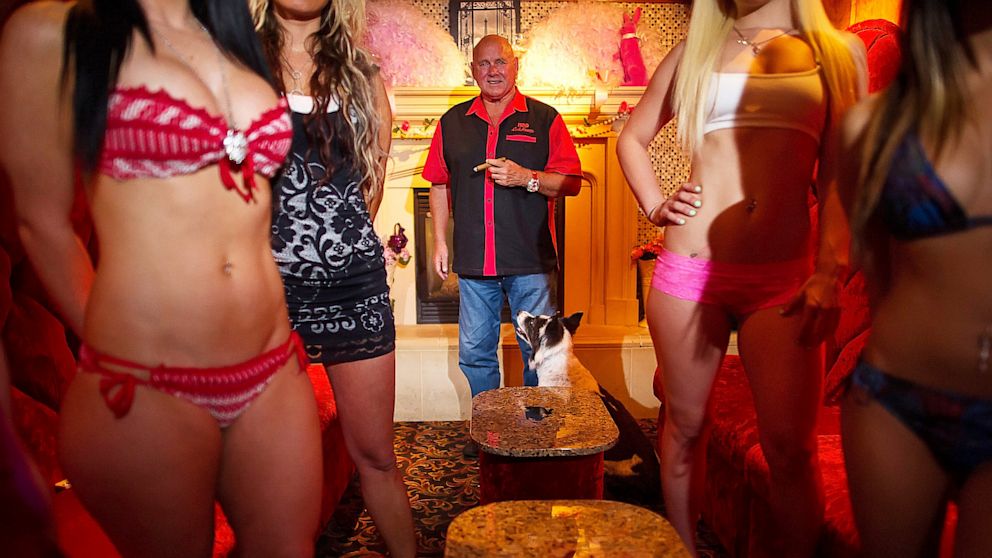Hard Times for Nevada's Legal Brothels
Recession, Internet add up to tough times for legal prostitution in Nevada.

Aug. 29, 2013 -- The legal prostitution industry in Nevada is on its back. So say brothel owners, their employees and customers.
George Flint, who somehow manages to be both a retired minister and the brothel industry's lobbyist (hey, it's Nevada) told ABC News that gross revenues are down 40 percent to 50 percent from what they were 10 years ago. The number of legal operators has shrunk from 37 to 19.
"Just like every other small business in the U.S.," said Flint, "brothels have been affected by the downturn in the economy. In as much as they depend on discretionary spending, there's not a lot of that to go around."
Nevada has recovered more slowly from the recession than almost any other state. According to the U.S. Bureau of Labor Statistics, Nevada, as of July, had the nation's highest rate of unemployment -- 9.5 percent, versus a national average of 7.4. According to an analysis by Bloomberg, the state's economic health has declined 46 percent since the last quarter of 2007 -- the second-worst decline after New Mexico.
Brothel experts say additional factors explain their industry's slump. The Internet now makes it easy for illegal, freelance prostitutes to hook up with customers, circumventing legal brothels.
"Substitute service is being offered," Flint said.
In addition, he said, the price of diesel fuel is up. That means truckers -- among brothels' most reliable customers -- have less to spend.
Trucker Calls Cops to Bust Underage Prostitution
By law, sparsely-populated parts of Nevada, which is to say most of the state, can decide on a county-by-county basis whether they want to permit legal prostitution. Ten out of 17 counties have decided that they do.
Not all brothels are suffering equally.
"Small mom-and-pop operations with three or four girls" are suffering the worst, said Flint.
But even the biggest operations are reporting sharp declines. The owner of the famous Mustang Ranch, said Flint, told him just the other day that his business, compared to a year ago, is down by 3,000 "dates."
"The concept that sex will always sell probably is not a true concept," said the lobbyist. "It's not that there's any less interest in sex; it's just that people don't have the dollars to spend."
Hard times beget consolidation, and at least one big, deep-pocketed operator is using the downturn as a chance to expand by buying up struggling competitors.
Dennis Hof, who owns the Moonlight Bunny Ranch outside Carson City, Nev., told Bloomberg that the recession has allowed him to buy five more brothels, bringing his total to seven.
When the economy comes back, Bloomberg quoted him as saying, "I think I'm going to do real well."
In June, Hof told the Legal Post of Canada that he was even considering expanding into Canada. Barring legal setbacks, he told the paper, "The Bunny Ranch will be there, and we'll be there in force."
Meanwhile, a new threat looms on the horizon: higher taxation. To date, brothels have not been subject to Nevada's 8 percent tax on live entertainment. But bills introduced in the state's last legislative session would change that.
"We are watching very carefully," said Flint, who worried his association's political action fund will lack the money to mount a vigorous defense.
"I used to have $70,000 a year for political action," he said. "Now, I don't know how much longer the state legislature will feel they owe us anymore."
On a lighter note, he quipped, "I have said for years, tongue in cheek, that I'm not sure brothels qualify as live entertainment."